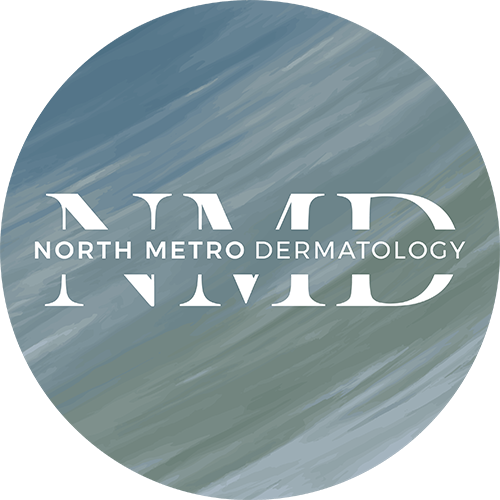Rosacea is a chronic condition characterized by redness, blushing or flushing, tiny dilated blood vessels in the skin, and/or raised red bumps on the cheeks, nose, forehead, and chin. Treatments do not cure rosacea, but they help control symptoms and prevent flares.
Yes, there are different types of rosacea, and there can often be overlap. The four common variants of rosacea are:
1. erythematotelangiectatic – characterized by persistent facial redness and tiny dilated blood vessels (telangiectasias)
2. papulopustular – redness with associated acne-like bumps and/or pustules
3. rhinophymatous – rare form characterized by thickened, bumpy, red skin predominantly affecting the nose and central cheeks
4. ocular – rosacea affecting the eyes characterized by dryness or irritation and described as a “burning” or “gritty” sensation
Rosacea tends to affect adults with fair skin complexions and those with genetic predisposition.
People with rosacea usually have more sensitive skin and can experience flares in symptoms with various triggers such as warmth, cold, sun exposure, stress, alcohol, or hot or spicy foods
PREVENTION & OVER-THE-COUNTER-TREATMENTS: Identifying and avoiding personal triggers can help to minimize flares. Other recommendations include using mild, gentle cleansers and avoiding use of irritating facial products. Sun protection is also very important – especially the use of a daily broad-spectrum sunscreen with SPF 30 or greater and zinc oxide content of 5% or greater. Green-tinted make-up or sunscreens can help reduce the appearance of redness.
TOPICALS: The first-line treatment for mild to moderate rosacea is often a topical regimen. Topical medications can reduce inflammation and bumps. There are also topical medications that can provide for temporary relief of redness and flushing. Your provider may recommend a combination of prescription topical medication as well as over-the-counter products. Skin Wise Organics Soothing Nutrient Complex contains niacinamide which can help soothe skin and reduce inflammation. To view topical skin care options that we offer, visit our store.
ORAL TREATMENTS: For patients with moderate to severe rosacea, oral antibiotics can decrease inflammation and minimize redness and bumps.
OTHER TREATMENTS: There are several treatments available to address the cosmetic aspects of rosacea. Light-based and laser treatments can help treat facial redness and broken blood vessels. Severe rhinophymatous rosacea can be treated with dermabrasion or other surgical treatments.
